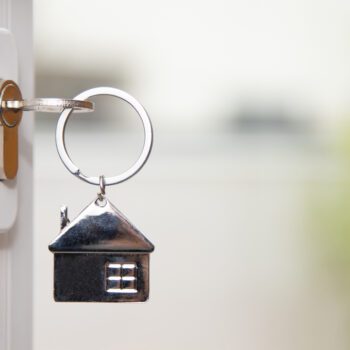What to Look for During a Rental Inspection

As a landlord, regular rental inspections are crucial for protecting your investment property and ensuring a safe living environment for your tenants. But what exactly should you be looking for during these inspections?
Inspections are something you want to get right, every time. So, let’s dive into the key areas to focus on and provide valuable insights to help you conduct thorough and effective rental inspections.
What is a Rental Inspection?
A rental inspection is a periodic examination of a rental property to assess its overall condition, identify any potential issues or maintenance needs, and ensure compliance with the terms of the lease agreement. These inspections are typically performed by the landlord or a property management company, and they serve as an essential tool for maintaining the integrity and value of your rental property.
Regular rental inspections are important for several reasons as they identify maintenance issues, ensure tenant safety, prevent property damage, and enforce rental lease compliance.
Checking off all of these boxes on your inspection requires finesse and knowing what to look out for during your inspection.
Ready to get into the nitty-gritty of it all?
What to Look for During a Rental Inspection
Overall Condition of the Property
Inspect walls, ceilings, floors, and exterior surfaces for any signs of damage, such as cracks, holes, or water stains.
Look for excessive wear and tear on carpets, paint, or other surfaces that may require replacement or repair.
Ensure the property is being maintained in a reasonably clean and organized manner. This step in the process is crucial as you want to ensure your renters are maintaining your investment without you having to foot the bill due to irresponsible and destructive behavior.
Safety Hazards
A safe renter is a happy renter. So, examine the most crucial safety components of your property. From smoke detectors to electric and plumbing, leave no stone unturned. Check for any exposed wires, damaged outlets, or faulty switches that could pose a fire or safety hazard.
Inspect for leaks, water damage, or any issues with the plumbing fixtures or pipes.
Look for any signs of structural issues, such as cracks in the foundation, sagging floors, or damaged support beams.
Mechanical Systems and Appliances
A thorough inspection of the mechanical systems and appliances identifies potential issues early on and addresses them promptly. This not only helps maintain the overall condition of the property but also ensures a comfortable and safe living environment for your tenants.
Turn on the heating and cooling systems to check if they are operating correctly. Additionally, inspect the air filters and replace them if they appear dirty or clogged, as this can significantly impact the system’s efficiency and indoor air quality.
Thoroughly test all major appliances to ensure they are in good working condition. This includes checking the stove and oven for proper heating and temperature control, ensuring the refrigerator and freezer are cooling adequately, and testing the dishwasher for proper cycling and cleaning performance.
Windows and Doors
Inspect all windows and doors to ensure they open and close smoothly without any obstructions or sticking. Check for any drafts or air leaks around the frames, which can lead to energy inefficiency and discomfort for the tenants. Additionally, examine the locks and hardware to ensure they are functioning correctly for security purposes.
Lease Compliance
Ensuring compliance with the terms of the lease agreement is a crucial aspect of rental inspections. Pay close attention to any unauthorized alterations or modifications made to the property by the tenant, such as renovations, painting, or structural changes that were not previously approved.
These alterations can potentially impact the property’s value, safety, or aesthetic appeal.
Additionally, if the lease prohibits pets, carefully inspect for any signs of unauthorized pet occupancy, including pet odors, hair, scratches, or other evidence that may indicate the presence of animals.
It’s also essential to verify that the number of occupants does not exceed the limits specified in the lease agreement, as overcrowding can lead to excessive wear and tear, increased utility costs, and potential safety concerns.
Frequency and Notice
As Fort Worth property managers, we recommend conducting rental inspections every 6-12 months, depending on the length of the lease term and the condition of the property.
Additionally, provide your tenants with at least 24 hours’ notice before conducting an inspection, as required by most state landlord-tenant laws.
Let Classic Property Management Put Your Rental Inspections Under the Microscope
Conducting thorough and consistent rental inspections can be a time-consuming and challenging task, especially if you’re managing multiple properties. That’s where Classic Property Management comes in. As a reputable property management company serving Fort Worth and the surrounding area, we specialize in handling all aspects of rental inspections for our clients.
Our experienced team will conduct regular inspections, document any issues or maintenance needs, and work closely with you to ensure your property remains in top condition. By partnering with Classic Property Management, you can rest assured that your investment is in good hands, and your tenants are living in a safe and well-maintained environment.
Contact us today to learn more about our rental inspection services and how we can help you protect and maximize the value of your investment property.


